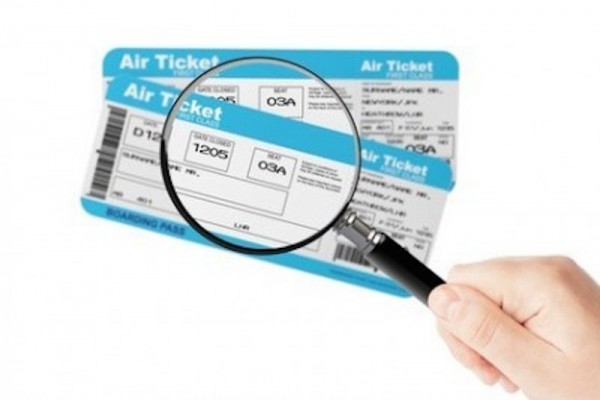
Newsletter Subscribe
Enter your email address below and subscribe to our newsletter

Enter your email address below and subscribe to our newsletter

So you purchased a ticket with one airline, but when you arrive to the airport, you quickly realize the airline name on your ticket has nothing to do with the carrier you’re actually flying with. Huh?? And to add insult to injury, you went to the completely wrong terminal and now have to run 100’s of miles to catch your flight in another terminal!
Sound familiar? If so, welcome to the world of Codeshare Agreements! You’re now one of the thousands of people each day who think they’ve purchased a ticket with one airline, but find themselves at the wrong ticket counter the day of departure. Gone are the days when the name on your ticket matched the name on your plane.
So what exactly is a Codeshare you ask? According to the US General Service Administration, “Code sharing is a commercial agreement between two airlines that allows an airline to put its two-letter identification code on the flights of another airline as they appear in computerized reservations systems. For example, Delta Airlines might have an agreement to operate flights for United Airlines on a route. This flight would be listed under United’s identification code (UA) but actually operated by Delta Airlines.” http://www.gsa.gov/portal/content/103887
The primary purpose of a Codeshare is to “share” the sale of seats on specific flights, offering passengers access to new destinations and benefits. This is achieved by expanding the route options offered by one airline via flights operated by partner airlines. Under a code sharing agreement, the airline that actually operates the flight (the one providing the plane, the crew and the ground handling services) is called the operating carrier. The company or companies that sell tickets for that flight but do not actually operate it are called marketing carriers or validating carriers.
Ok, but what does all this mean for you? In the grand scheme of things, absolutely nothing! You are still going to arrive at your final destination, perhaps just slightly more confused and/or annoyed. So to help make your future travel plans go as smoothly as possible, here are some tips to help you better understand Codeshares.
Never assume: Do not assume the airline you’re purchasing your ticket through is actually the airline operating the flight. The majority of airlines that exist today are actually in a shared alliance with several other carriers.
Listen carefully: When booking your flight over the phone, listen carefully to the vital information given. If they mention the word “codeshare”, it is important to clarify which airline is actually operating your flight. Don’t be afraid to ask questions.
Learn to read your ticket: If your flight number says UA 8765, don’t assume you will be flying with United. Look closely for the words “operated by” on your ticket. An example would be “UA 8765, Operated by Air Canada.” In this case you would be flying on an Air Canada flight, not United.
Look at flight number: Codeshare flights usually have a 4-digit number following the two-letter airline designator code. Typically these numbers are higher, ranging anywhere from 3000-9000. Airlines tend to use only three digits in their own flight numbers. For example, Lufthansa 9355 operated by (UA) United, is actually sold by United under UA 938.
Check-in with the appropriate airline: Now that you figured out which airline is actually operating your flight, be sure to check-in at the appropriate terminal/counter. If your flight is “UA 8624, operated by Air Canada”, then you need to check-in with Air Canada. Think about it…Air Canada is the operating flight; therefore they will take your luggage, check you in, etc. The other airline, in this case United, might not even be in the same terminal. Knowing your operating airline carrier ahead of time will save a huge headache the day of your departure!!
Flight cancellation: What happens if your flight cancels? Technically, the airline that checks you in is responsible to get you to your final destination, regardless of whether the flight is a code share. But beware; this can sometimes create a challenge between the two carriers and leave you stuck somewhere in the middle trying to figure it all out. If you booked through United, but find yourself in an Air Canada terminal, you’re not likely going to find an available United customer service counter. Try calling your the airline you purchased your ticket through first, and hopefully they will be able to sort it out. If all else fails, go to the customer service counter of your operating carrier.
Knowledge is power! Always do your research ahead of time and be prepared before arriving to the airport.
Do you have a Codeshare experience you’d like to share?? We’d love to hear from you!! Share your comments below!